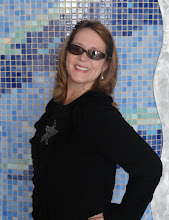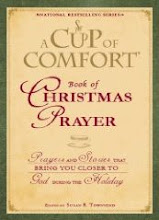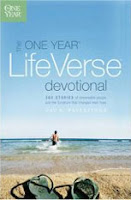
Today I'm blogging on
Boomer Babes about feeling out of place? It happens quite often and sometimes it's where I least expect it. I'll let you read for yourself and maybe you have some experiences you'd like to share.
But today, I thought I would answer a mentoring question posed to me in an e-mail about writing. This is where I feel "out of place" because I believe that writing is a gift...for some of us it comes naturally and for others it is a craft that continues to evolve. There's no one set way to get into writing. I never even intended to be a writer, but a cancer diagnosis changed the way I looked at life. I knew absolutely nothing about writing, publishers, editors, but I do remember attending one event in Nashville (I thought it was a writer's conference!); it was NOT. It was a publisher's conference and it was scary! The first editor I met said, "You're not blonde, rich or famous so why do I care?" That was my first introduction into the writing world. I went home and in two months I wrote
Trading Ashes for Roses, number 17 on my passionate to-do list (I guess now we can call it the "
Bucket List" made popular by the movie!).
Here's my advice to new writers:
1. Make sure you love to write because you will be spending a lot of time in front of the computer screen. Ask other writers how they plan their day and what drew them into writing (you might be surprised at the answers). Don't quit your day job yet!
2. Writer's Groups. That's a hard one. I just recently joined one (sort of). I'm one of those writers that flys by the seat of her pants. I write, revise (only once), and then submit! I know other authors who have to go to a writer's group, get their piece critiqued, sit on it for months, and then eventually hit the send button. There's no right or wrong way. My advice: Just do it! Writer's groups aren't for everyone. If you feel that you need the input of others to stay focused, encouraged, and enlightened, then by all means join one.
3. Writer's Conferences. This is where I'm going to get into some real hot water, so I'm going to share my thoughts cautiously. This is where you have an opportunity to meet editors one on one. In the writing industry, it's not what you know, but who you know. So I know authors who gallop from one conference to another to rub elbows with editors (sometimes jumping over barricades to shake hands and give a pitch). If this is you, then go for it. There are some great workshops, a time to network, have your work reviewed, and possibly even land a book contract. I have only been to one writer's conference where I was presenting a compilation book and I do teach at writer's conferences. Something to consider: They are expensive, so find out what your needs are first. Ask yourselves these questions: Do you want a quiet, intimate setting with more one on one mentoring or do you like the highly charged, 350 editors and authors in one place with hundreds of workshops to choose from? Just Google "Christian Writer's Conferences" and you'll find one that will fit your needs.
4. Why do you want to write a book? This is a question I ask everyone first. You would be surprised at the answers I receive. "I want to be rich and famous!" Wrong answer. Unless you are in the top ten best seller's list of the NY Times, you will not get rich writing a book. Certainly, it does open doors that otherwise wouldn't be opened for you, but unless you have about six or seven books under your belt, you may be surprised at those royalty checks. Why? Books are sold by proposal, which is 80% marketing, which means you need a platform (what is it that makes you the right one to write the book; do you have big name endorsements; do you have a large e-mail list; do you have a unique message with a hook and slant?). Think of it in these terms: Every book has already been written ("there's nothing new under the sun"--you just have to come up with a different slant and twist!).
5. Submit, submit, submit. Start small and work up. I did it backwards. I wrote my book first and then submitted to magazines and compilation books. Write for
Chicken Soup, Cup of Comfort, and God Allows U-Turns. There are a lot of compilation books out there. Building writing credits is important; it gives you credibility and it also allows you to find your "voice" in writing. Most editors will tell you that the "voice" of a writer is one of the most important things they consider when reviewing book proposals. Don't try to write like other authors...that's their voice, not yours. I hear young writers say, "I wish I could write like...(fill in the blank)." My reponse is, "Why would you want to do that?" That's their handprint...no two writers are the same and all of us would approach the same subject in different ways. I know authors who tab pages of books, underline phrases, and try to "copy" another author's approach, but that's not really writing is it?
6. The last and most important question is, "What is your message?" Do you have a unique story to tell? Then don't wait for the right time, start writing and do it every day. Don't wait for inspiration...just write! Find a place that's comfortable for you: I write in hotel lobbies on paper napkins!
7. I wanted to end with a perfect "odd" number, but realized I would let you determine what #7 is for you!
Wherever your writing career takes you, I pray it's one that is a blessing to you! When you've identified what makes writing a "blessing" to you, you'll never feel out of place as a writer!
Technorati Tags:
authors, writing, writing conferences, passion, feeling out of place, writing career, writing voice, speaking
 A friend passed this message on to me. I'm not sure of the "original" source, but it made me think. What am I going to do with my extra 24 hours?
A friend passed this message on to me. I'm not sure of the "original" source, but it made me think. What am I going to do with my extra 24 hours?

























